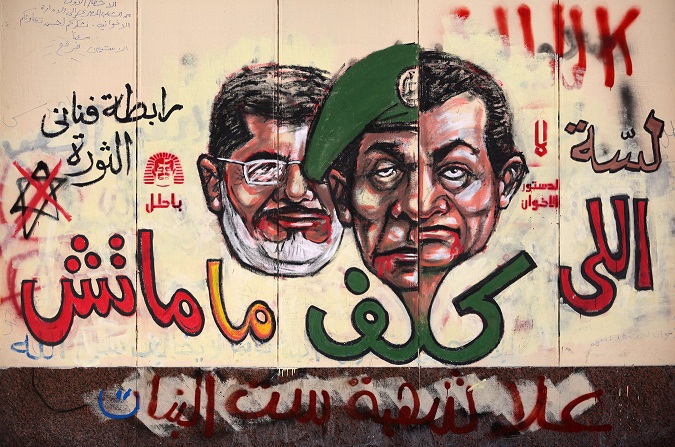Since last week, the issue of the Grand Ethiopian Renaissance Dam has been on the minds of many journalists and columnists. Two writers ponder what should be done to solve the potential crisis between Ethiopia and Egypt.
We were surprised and did not understand
Fahmy Howeidy
Al-Shorouk Newspaper
Columnist Fahmy Howeidy, who frequently expresses his support for the ruling authority, seems to be dumbfounded and confused by the issue of the Grand Ethiopian Renaissance Dam.
He wonders whether or not the government knew about the diversion of the Blue Nile beforehand, and concludes that it is a disaster in both cases. He explains that since Ethiopia has already begun the diversion process, then they must have been preparing for months. He adds that the Egyptian embassy in Addis Ababa must have known about such an operation, especially since Egypt participated in a tripartite committee with Ethiopia and Sudan regarding the issue. It seems to Howeidy that the only people left in the dark regarding the issue were the general public.
He tackles the issue of the government’s statements, which he believes only added to the confusion. The government had denied that Egypt’s Nile water shares would be affected by the dam. However, a national panel at Cairo University deduced that the ramifications of the dam will include electricity reduction by 40% and water reduction by 20%. Then there was the military intervention option, which was opposed by the government. In addition, Sudan’s reaction to the building of the dam seemed also confusing. In the beginning Egypt’s south neighbour was against dam project, but then on 31 May Sudan’s Minister of Culture Ahmed Bilal issued a statement that the government is not only acceptant of the dam’s construction, but even predicts they can benefit from it.
Howeidy blames media for taking the issue of the dam as reason to attack President Mohamed Morsi. However, he also blames the government for the lack of transparency in any dealings concerning the dam, which only adds to the confusion. He mentions a “trustworthy anonymous source” told him that since Ethiopia only cares for electricity and Egypt only cares for water then both countries can make some kind of deal to serve both interests. He concludes that this explains why Hesham Qandil travelled to Japan to attend the Tokyo International Conference on African Development, especially since the conference will soon be hosted by Ethiopia.
The Grand Ethiopian Renaissance dam
Dr Mohamed Habib
Al Masry Al Youm Newspaper
Dr Mohamed Habib, a former member of the Muslim Brotherhood, begins by writing that we as a country are unable to fully appreciate the blessing that is the river Nile. He quotes Gamal Hamdan’s book The Character of Egypt, tracing the beginning and end of the Nile. The excerpt explains that the heart of the Nile is Sudan, and its edges are in Ethiopia on the right, and the lakes on the left. Even though these edges lack some social and technological development, there is some danger to them. Therefore, Egypt has to develop and nurture its interests regarding the Nile in these places.
Hamdan also wrote that the edge that is of great importance is the one in Ethiopia. Not only because it is the main source of water, but also it is the most similar to Egypt regarding history and civilisation. Even though Islam and Christianity reached Ethiopia from Egypt, they did not make it to the lakes.
Habib alleges that while people were surprised by Ethiopia diverting the Blue Nile, the governments were already aware of the project, and the presidency received information regarding it six months ago.
He adds that people are not against the building of the dam, but they are against Egypt’s share of water being affected. He explains that the dam will “control 86% of the Nile’s water, which we receive”. After Ethiopia’s announcement, Habib expected Morsi to summon experts in national security, water consumption, international law and strategic planning to decide how to move forward from here. He adds that even using only political efforts, the threat of a military option should remain on the table.
However Habib believes that Ethiopia will not do anything so long as Egypt remains divided and confused regarding the dam’s construction. He adds that all parties should unite to maintain and further communication between Egypt and Ethiopia. He concludes that the Nile is an international river and Ethiopia has no right to treat it as if it is their own.




